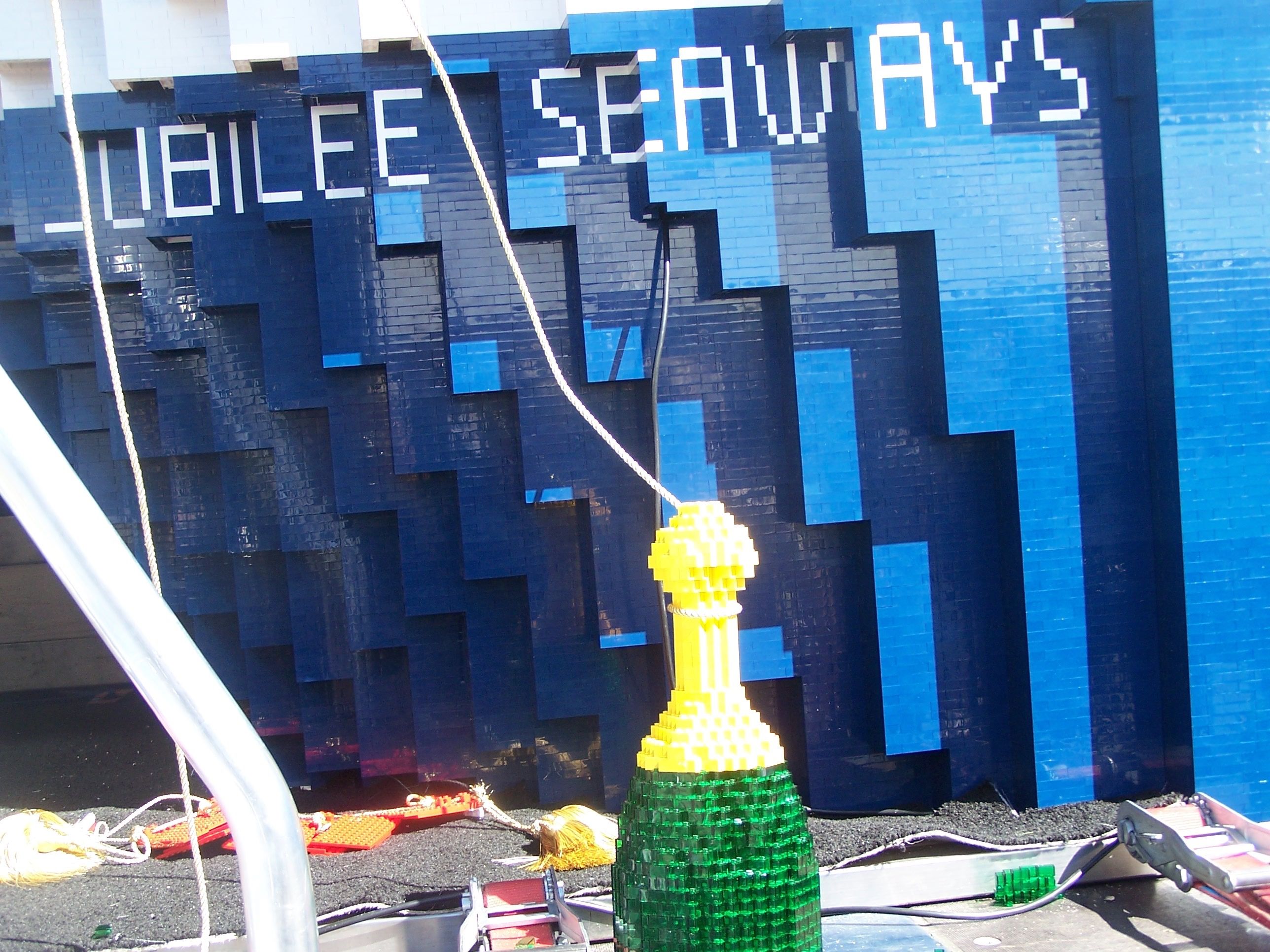The sun shone brightly on the couple of hundred guests assembled as officials from the Guinness Book of World Records measured the Lego ship assembled piece-by-piece by DFDS employees around the world.
At 12.035 metres long and 1.67 metres wide, the newly-christened ‘Jubilee Seaways’ is the largest Lego ship ever assembled. As the record was verified, ‘The Crown Seaways’ sitting alongside the model in the harbour sounded its horn.
Inge Grønvold, the head of the Lauritzen Foundation, DFDS’s partner in the project, did the actual honours, christening the Lego ship with, what else, a champagne bottle made out of Lego.
A symbol
DFDS managing director Niels Smedegaard said the ship – constructed as part of the company’s 150th anniversary celebration – was a symbol of the many facets of the work of DFDS.
“We are shipbuilders. But this is perhaps the first time we have built the whole ship ourselves rather than had work done by other partners,” he said. “After 500 hundred ships of steel, this is our first built out of Lego.”
Smedegaard said the massive ship being pulled about on a lorry trailer was a symbol of the company’s logistics and shipping division.
“But normally it is our ships carrying trucks. This is the other way around.”
Something big for a big year
DFDS group marketing director Rikke Gransøe Lange said the project had taken nearly a year.
“When we thought of ways to celebrate something as large as a 150th anniversary, we knew it would have to be big,” she said. “So we did what we do at DFDS; we did something big together.”
READ MORE: DFDS invests in Copenhagen to Oslo route
To construct the ship, boxes of Lego blocks were delivered to employees at offices, terminals and ships throughout DFDS.
Each ‘section’ were assigned a part of the ship to construct in the company’s trademark blue and white colours.
The many separate sections were then sent to Scotland where they were assembled into the finished ship with the help of professional Lego builders.














